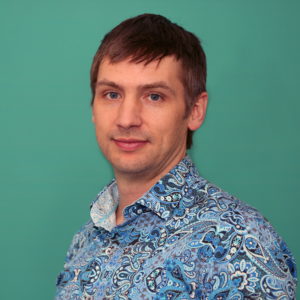Family physicians who offer enhanced surgical skills (ESS) are vital to rural Alberta communities.
Rural GPs who can perform enhanced surgeries like appendectomies and caesarean deliveries provide rural and remote residents with greater access to live-saving health-care services, and enhance the ability of rural communities to attract rural health practitioners.
However, maintaining a high level of medical competency in these skills also comes with great geographic, professional, and financial challenges.
Since its inception, RhPAP has offered Skills Enrichment programming assist physicians in rural or regional communities to upgrade existing skills, or gain new skills, in order to meet the medical needs of the community or surrounding areas.
RhPAP also partners with the Society of Rural Physicians of Canada (SRPC) to offer the Enhanced Surgical Skills Program in Banff, Alberta. This one-day course updates rural ESS physicians with current methods, facilitates informal communication, and encourages family physician-specialist networks. Starting in 2018, rural Alberta OR nurses were invited to fully participate, and a dedicated program stream for nurses was established. This Group Learning program has been certified by the College of Family Physicians of Canada and the Alberta Chapter for up to 11 Mainpro+ credits.
In 2018, RhPAP welcomed two rural Alberta physicians to the team to help promote and support Enhanced Surgical Skills training in rural Alberta communities.
We interviewed Dr. Jared Van Bussel, a family physician in Pincher Creek, Alberta, and Dr. Audrée Bédard, a family physician from Peace River, Alberta, to learn more about their involvement in with RhPAP and Enhanced Surgical Skills (ESS).
RhPAP: Tell us a little bit about yourselves, and how you became involved with RhPAP and ESS.

VAN BUSSEL: I grew up in Strathmore, Alberta and later spent a few years there early in my career, and practiced with the low-risk maternity group in High River. I have also spent some time doing locums for various rural communities across the province. I gained an interest in maternity care and labour and delivery, which partly guided my interest in Pincher Creek due to their dedication to full-practice family medicine. In my pursuit of this shared goal, I obtained training in Enhanced Surgical Skills in Prince Albert, SK in 2012-2013.
At that time, I recognized the need for caesarean section to support labour and delivery. However, I did not fully understand the complex environment surrounding the training, certification, privileging, and practice of enhanced skills in Alberta.

BÉDARD: I am originally from Quebec and moved to Western Canada in 2013 for the start of a Family Medicine Residency with UBC, after which I pursued additional surgical training in Prince Albert, SK.
During my limited experience in practice I have been fortunate to find great support from colleagues and specialists in regional centers. Despite the local and regional support there were times where being the sole surgical provider in the area brought on an uncomfortable sense of isolation.
RhPAP: What is enhanced surgical skills (ESS)?
VAN BUSSEL: ESS is a certification in family medicine which recognizes a skillset that is beyond what would be typical for a graduate of a family medicine program. Currently there are a few programs that add on to the training a family physician may already have to allow them to practice a defined small subset of surgical procedures.
The purpose is to support caesarean section capabilities in regions that cannot maintain a call roster of specialty surgeons. Some physicians are only trained in obstetrical operative skill – sometimes defined as OSS or ESS-OB, and sometimes they may round out a call schedule along with specialty surgeons.
Additional procedures may provide more operating time for surgeons who may otherwise only be in the OR for emergency procedures, and are complementary to reinforce similar skills in the OR, as well as to maintain a high-functioning interdisciplinary OR team. This also may help avoid the need for travel to residents of smaller communities to access these services. Common other skills are hernia repair, appendectomy, carpal tunnel and trigger finger releases, endoscopy – both gastroscopy and colonoscopy, dilation and curettage, and tonsillectomy, among others.
RhPAP: Why is ESS important to rural health-care providers?
VAN BUSSEL: Rural medicine can be very isolating. There are challenges to provide and organize services for local residents, navigate the distant resources, and maintain competency in a wide breadth of medicine. Patients also have difficulty accessing care – from cost and organization of travel, distance from support networks, and time needed away from dependents and work – a centralized model of care does not benefit rural residents.
An active hospital attracts a larger number of physicians with a wider experience of medicine, and inoculates us against the fear and isolation that solo or small practice may create, allowing physicians to be sustained and feel fulfilled in their roles. It also draws an interdisciplinary team for patients to access, and provides opportunities for employment for a community. The supports needed to run a labour and delivery program demands an active hospital.
RhPAP: How is RhPAP involved with with ESS, and what is your role?
VAN BUSSEL: RhPAP has recognized that labour and delivery, and the supports needed to sustain it, are essential to rural communities, rural health practitioners, and rural physicians. ESS is currently a young training program in Canada, as most of our rural physicians with the ability to do a caesarean section have trained abroad. It needs advocacy to thrive, especially as it often escapes the view from urban-based decision-makers.
My role as a RAPPER is to find avenues for that support, and advise based on my experience where might be the greatest need for these supports.
BÉDARD: My involvement with RhPAP originated from a desire to create relationships between surgical providers, encourage conversations and consultations. There are a lot of parties at play when considering the provision of obstetrical and surgical care in a rural area.
“No one can whistle a symphony. It takes a whole orchestra to play it.” – H.E. Luccock
RhPAP: What is the focus moving forward?
VAN BUSSEL: In our first year, we have focused on information gathering. Looking to our neighbors in BC where they have started to build networks between rural ESS practitioners their referral centers and established some clinical coaching relationships. We are looking to what would be needed to replicate some of their successes.
We have made connections with UofA and UofC for what their needs are for training ESS physicians, and what could be provided for continuing medical education for these practitioners. We have also found that there has been no rigorous approach to determine the location, or number of ESS physicians, or the breadth of their practice in the province of Alberta by any of our partners.
In our second year, we hope to make forward movement on establishing pilot programs for clinical coaching. We also need to support a network of ESS practitioners, which will require us to build a database of communities that perform caesarean sections, and the health practitioners with the skills needed to support those communities. We would also like to support the ongoing educational needs to support these practitioners.
RhPAP: How do rural health-care providers get involved?
VAN BUSSEL: Let us know what supports we can provide, to help you do your job better. I know the difficulties I face in my own community, but many of you may have faced those difficulties before and have solutions you can share. By nature of our work in rural communities, we may be isolated – and as practitioners with additional skills, you may be isolated from your colleagues.
References:
Iglesias, Stuart, et al. “Joint position paper on rural surgery and operative delivery.” Canadian Journal of Rural Medicine 20.4 (2015): 129-139.

This will help so many people who used to go abroad to get the same sugary. I think we should empower the doctors here to do better and provide the best service to everyone here.